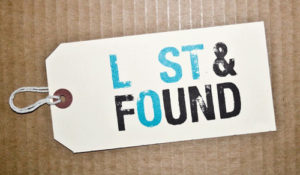Perspectives on Loss
Sermon by Rev. Steven McClelland on Luke 15: 1 – 32. Focus on how everyone is being lost and found and the only question is: Do we realize this. Check out Kelly Crandell and the choir as they sing – He is Exalted.
The Prodigal Son doesn’t really work for me. Let’s rename it. Why? Because I am not that son. I am the older brother. I have two younger sisters and when I really look at this parable I see a theme common to everyone in this story just as there is a common theme with the two parables that precede ours. The parable of the lost sheep and the lost coin.
I think we should rename this story – Persepctives on Being Lost.
But here’s a question: Can you be righteous and still lost? Because the thing that we need to remember is that Jesus is telling all three of these parables to two very distinct groups. Luke says first the tax collectors and sinners flocked to listen to Jesus and then the Pharisees and scribes upon hearing these parables go away grumbling because Jesus refuses to accept their categories of who’s in and who is not. Their chief complaint – Jesus eats with sinners and he should know better.
And while we may be used to thinking that “we’re all sinners.” Luke sees it differently. When Luke describes someone as a “sinner” he is talking about someone whose pattern of sinning is so habitual, even second nature, that the whole community knows of it.
Similarly, by “righteous” Luke doesn’t mean those who are either perfect or self-righteous, but someone who actually and actively tries to live up to the law. And by eating with habitual sinners, by welcoming them, accepting them and befriending them. He embarrasses all the decent folk in town.
But rather than tell us stories about the difference between sinners and righteous people, Jesus tells us three parables about things we lose – a sheep, a coin, and a son – and the joy we experience when these things are found. But here’s the thing. Jesus begins each story with the assumption that the behavior of the shepherd, the women and the Father are all normal.
Natural enough we think because that’s the job of the shepherd until we realize that to find the one lost sheep he has to put the other 99 sheep at risk. And when he finds the lost sheep, he calls all his friends and neighbors to join him in his celebration. Normal behavior? Not really.
Or what about the women who loses a tenth of her wealth and then sweeps the house all night looking for it, which makes sense to me. But then, when she finds the coin, she calls together all of her neighbors and throws them a party, which would mean she spent the money she found on a party. Normal behavior? I don’t think so.
So what is Luke doing here? I believe Luke is saying you can be good Christians. Try to do the right things and even though we may nod in agreement that we are sinners who are forgiven by God. What we really think to ourselves is “Yes I’m a sinner just not as bad as the one next to me.”
So if these parables are not about why sinners are much more fun than the righteous then the question becomes: “Can those who are trying to do the right thing according to law and tradition also be lost? After all that is what all three of these parables have in common – everyone is lost. The sheep, the coin, the younger and the older sons – all lost.
As David Lose, President of the Lutheran Seminary in Philly so aptly put it (In his Blog – Lost September 9, 2013): “Might the career minded man or woman who has made moving up the corporate ladder their one and only priority be lost?
Might the folks who work the jobs they hate just to give their family things they never had be lost?
Might the senior who has a great pension plan but little sense of meaning since retirement be lost?
Might the teen who works so hard to be perfect and who is willing to do just about anything to fit in be lost?
Might the earnest Christian who is constantly asking whether people have accepted Jesus into their hearts be lost?”
There are a lot of people in congregations who appear to have it all together and yet deep down are just plan lost. It’s not that there’s something inherently wrong with with being righteous. Working hard, doing your best, showing up and helping at church are all good things. But ultimately they can only scratch the surface of who we truly are and what we need and hope for.
To constantly define yourself as either sinner or saint is a legal distinction that is based upon what you have done, while understanding ourselves as lost and ultimately as being found is much more true to our real existence. And as a result the realization that it is only God who can grant us an identity beyond what we have done, are doing, or may someday do.
And it is our God who invites the righteous and sinner alike to join him at the banquet that he is throwing in our honor – seek us out, lighting a lamp and sweeping the whole house and finally expectantly waiting for our return – so that we all might find ourselves caught up in God’s great banquet of grace and mercy. The only question left is will we join in? Only you can answer that question. Amen

